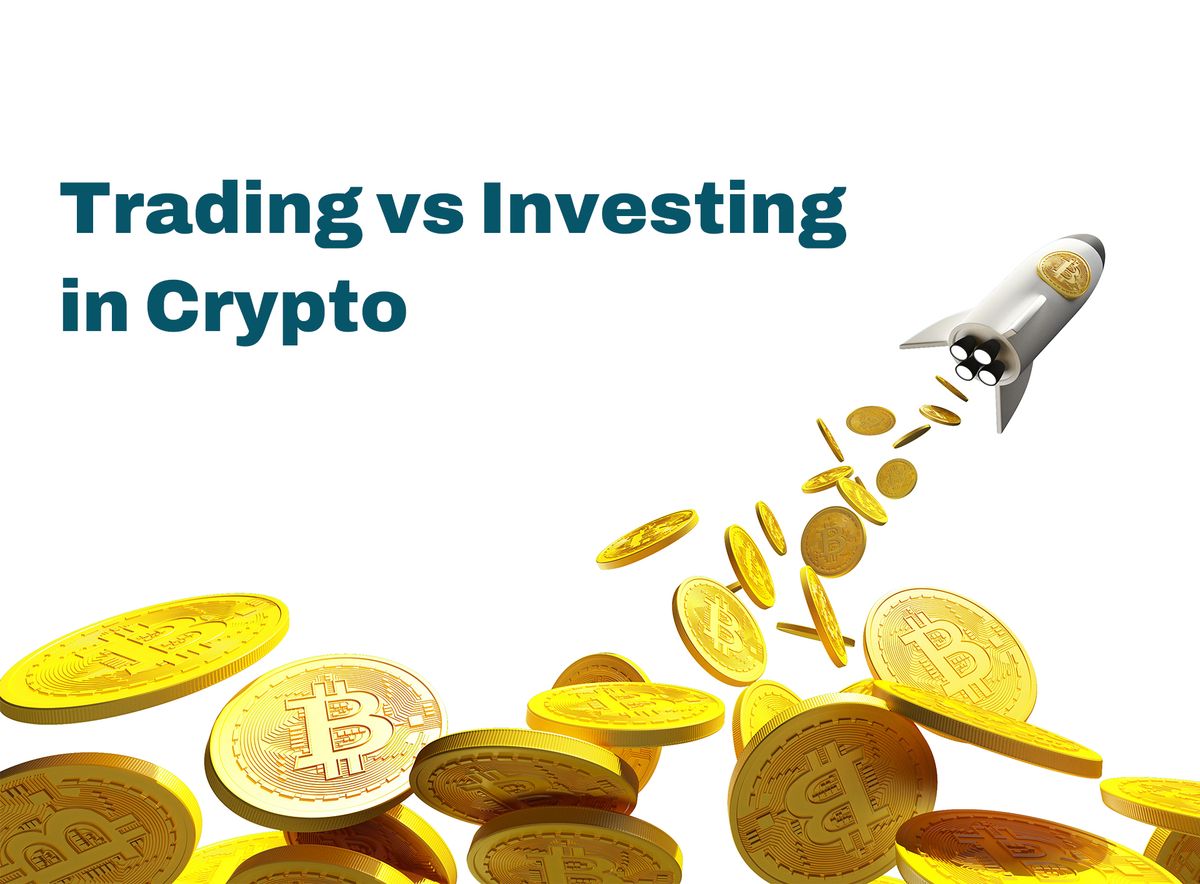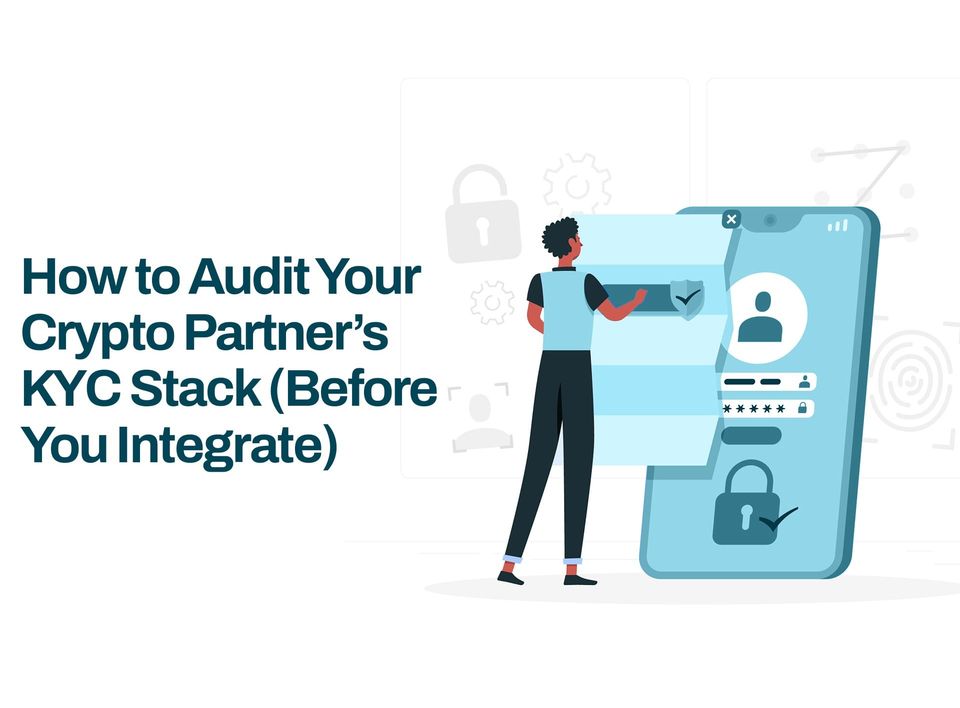Trading vs Investing in Crypto: Which Is Better?
Trading is a short-term strategy, while investing is for the long term.

Every crypto enthusiast’s dream is to cash out and make millions every day, week, month or year from crypto.
However, most people who venture into crypto immediately jump into trading and/or investing with little to no information about what they're doing.
While it's okay to be ambitious, choosing one of these strategies is unwise without proper knowledge of what it entails.
This article will unpack crypto trading and investing, guidance factors for choosing one and your starter pack.
What is the difference between trading and investing in crypto?
Trading and investing sit in the same category, but the differences become apparent when they are individually unpacked.
1. Trading is a short-term strategy, while investing is for the long term. If you're keen on cashing out quickly and often, trading is the way to go. If you're the patient dog wanting to eat fatter bones, investing could be for you as it involves a long wait before exchanging.
2. Trading has higher risks. Imagine if you have a pair of shoes you bought for $20, and the price goes to $30 today. That would give a profit. If you wait till the next day, the price could drop to $10, which would be a loss. This fluctuation makes trading riskier than its long-term counterpart.
Investing, however, will wait for more extended periods and reduce the risk involved. This is because crypto typically appreciates over time, even if the daily price fluctuates.
3. Trading is more focused on price movements while investing focuses mainly on the foundation and track record of an asset/coin.
How do I choose between Trading and Investing
There are specific questions you need to answer to know the strategy that is best suited for you. These questions are factors that will guide you as a beginner in the crypto space.
1. Financial goals
2. Capital
3. Knowledge of the Market
Financial Goals
Since it is evident that the primary financial goal is to make money, there are other things to consider. Are you looking to make quick money? Are you more interested in building a solid investment portfolio over time?
Capital
How much do you have as seed money or assets? It is possible to start with very little. If you have a little capital, trading may dance in your favour. Those looking to throw in a sizable amount of capital might benefit more from investing.
Knowledge of The Market
As a beginner, it's not expected that you'll know everything about a coin or its history in revenue. However, your knowledge level is vital in choosing which strategy to begin with.
Investment requires more knowledge than trading. You need to know much about the cryptocurrency you want to invest in. Some vital information includes its originators, growth in value over the years, availability as a means of exchange for e-commerce, etc.
It can be a bit challenging to take in all this information. So, have a meeting with yourself and rate your knowledge base.
Types of Crypto Trading Strategies
1. Day-trading
As the name implies, it refers to buying and selling daily. Traders that use this strategy make both gains and losses every day.
2. Swing trading
This involves holding off on selling for a bit while monitoring the market. When traders notice that a change is soon to happen, they properly position themselves to catch the change in trends when it happens.
3. Scalping
This is one of the popular strategies. It is the method in which a trader makes very little profit but has many of these profits, which accumulate to something tangible.
4. Position trading
This trading strategy is similar to investing. This is because the trader holds off on making any trade, be it buying or selling, for months. They swoop in and trade when the market looks favourable enough for them.
Types of Crypto Investment Strategies
There are different investment strategies, but for the sake of simplicity, we will consider the most popular one - HODL.
HODL, as you already know, means Hold On for Dear Life. It simply involves buying into an asset and holding on to it for a very long time.
Before anyone uses this strategy or any other, they must have done their Due Diligence (D.D.) by looking at the history of the asset, its founders or developers, its growth over the years and speculations about it from authorities in the crypto space.
What you need to Get started in Crypto Trading or Investing
Call this your starter pack if you wish. We’re providing a concise list of must-haves before you fly into the crypto market.
1. A wallet: Obviously, you would need a crypto wallet where you have your crypto assets. An online wallet would be better suited for trading. As a beginner, you can employ the services of an exchange such as Obiex to manage your wallet.
2. Knowledge of coins, assets, market charts and trends: Looking at those charts and zig-zag lines can be off-putting if you do not know how to read them. It can also be boring. This is why we recommend a mentor who can teach you how to interpret the charts.
As much as possible, it is also helpful to read articles and join crypto forums to pick up a thing or two.
3. Time: If you're considering crypto trading or investing, you should be ready to dedicate a reasonable amount of time to it. In the beginning, you would need to invest your time a lot to understand the crypto game and how to play it.
Final Word
Considering all this, which is better for a crypto beginner, trading or investing? You decide. Trading can reel in huge income within a short time if you go about it the right way.
Investment is less risky than trading and has the potential to rake in the millions over time. It might take a long time for this to happen (which you can use to understand how trading works). But isn't patience a virtue?
Disclaimer: This article was written by the writer to provide guidance and understanding of cryptocurrency trading. It is not an exhaustive article and should not be taken as financial advice. Obiex will not be held liable for your investment decisions.



